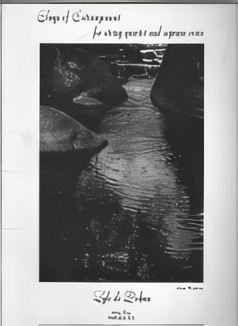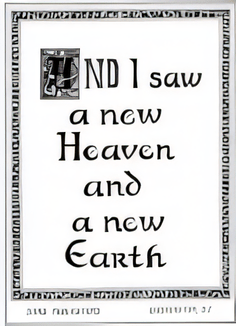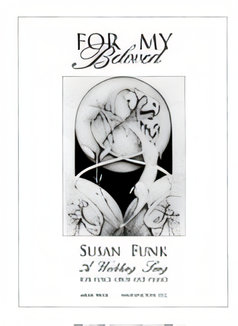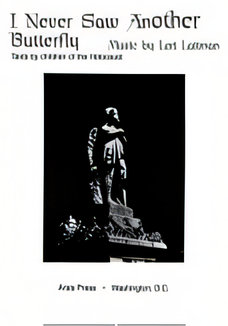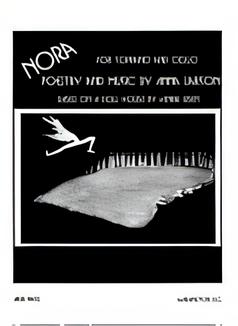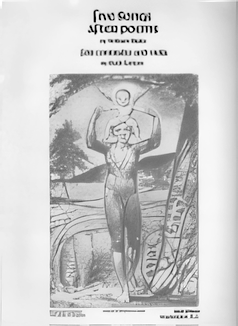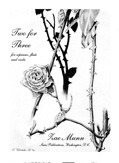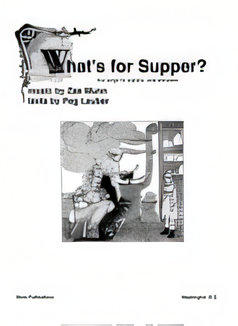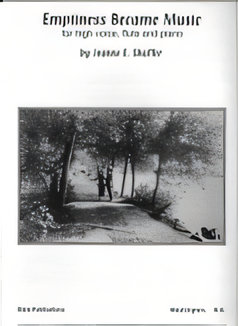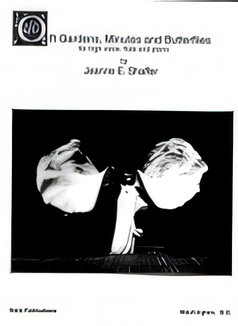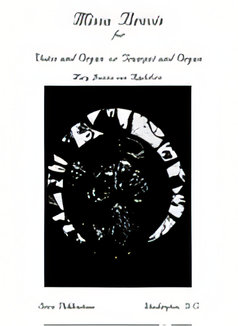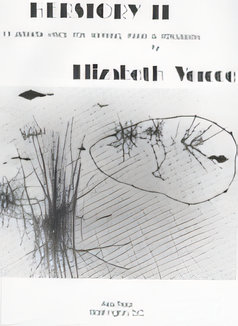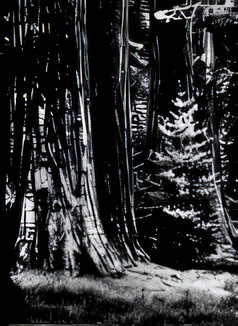Voice & Other Instruments
Bohun, Lyle de
Songs of Estrangement
for string quartet & soprano
The four songs are entitled: Snow Has Lain, Flowers Fall, Death Has Risen and Love Is A-Borning.
With metaphors from nature, this four movement work dramatically depicts the developing intensities of a romantic relationship which over time matures and stabilizes into mutual contentment.
Songs of Estrangement are available at the New York Public Library.
Diemer, Emma Lou
And I Saw a New Heaven and a New Earth
from “Revelations 21” for medium high voice, trumpet, and organ or piano
This dramatic work varies in mood from declamatory or dynamic to lyrical.
Funk, Susan
For My Beloved
a wedding song (easy) for medium voice, oboe and piano
A technically easy piece for weddings or recitals, this song was the composer’s gift to her bridegroom. The text is from the Song of Solomon.
Laitman, Lori
I Never Saw Another Butterfly
Six songs for soprano and alto saxophone or clarinet or bassoon on texts by children of the Holocaust.
Based on poetry by children from the Terezin concentration camp and written in 1996, the six songs of the cycle use varied imagery and musical styles. The composer writes: “One cannot help but be touched by the hope and innocence that these children put into their poetry, despite their terrible surroundings. The accompaniment of saxophone is intended to be haunting and soulful, with echoes of Klezmer music. The song titles are: The Butterfly, Yes–That’s the Way Things Are, Birdsong, Man Proposes, God Disposes, and The Old House . The first performance was at John Hopkins University in 1996 with soprano Lauren Wagner and saxophonist Gary Louie, for whom the piece was written.
The score is available from the composer’s website and also circulates at the New York Public Library.
Larson, Anna
Nora
for soprano and cello
Based on A Doll House by Henrik Ibsen.
Based on the title role of Ibsen’s play, Nora received its first performance in 2001 on a concert of the Contemporary Music Forum at the Corcoran Gallery in Washington, D.C.
The composer writes:
“I have chosen to write this dramatic chamber work from inside Nora’s mind and memory, as she ponders and relives her experience with Torvald [her husband]. When she finally leaves him, she is completely clear on the need to escape his influence, but she steps into the unknown. Nora is divided into six parts, including a prologue and epilogue of my own poetry and imagery.”
The score is available from the composer’s website.
Lomon, Ruth
Five Songs after Poems by William Blake
Five polyphonic duets for contralto and viola.
The first four poems by William Blake set here are from his Songs of Experience and the fifth is from his Satiric Verses and Epigrams. The pieces are polyphonic duets with the titles: The Sunflower, The Fly, The Sick Rose, The Clod and the Pebble, and Injunction. In a paper entitled A Comparative Stylistic Analysis, Carol Ann O’Connor writes: “This set of five polyphonic duets for contralto and viola incorporates many aspects of musical personality and technique found in [the composer’s] later works…and illustrate Lomon’s sensitivity to capturing in music the essence of a poetic gesture or image.”
A copy of the score circulates at the New York Public Library.
Munn, Zae
Two for Three
for soprano, flute and viola
Two for Three (1994) is based on two poems by Peg Carlson Lauber: For a Few Minutes Lie in the Sun and Contemplate Cliché Angels. The structure of the first song puts musical parentheses around anger and bitterness by alternating serenity, venomous emotions and a return of serenity. The second song alternates humorous music with jazz references to celebrate words. The two songs may be performed separately
What’s for Supper?
four songs for soprano, viola and piano
Composed both to entertain and educate young people about contemporary concert music as well as serve as recital pieces, What’s for Supper? was written on a COSTAR Grant from Saint Mary’s College. The titles of the four songs are: I’ll Go Along, What’s for Supper?, If I Could, and Oh no! Not Me. The individual songs may be performed separately and the piece may be performed without viola.
Shaffer, Jeanne
Emptiness Became Music
Four songs for high voice, flute and piano
The songs are on texts by the composer and are entitled: When Did Our Love Begin?, How Dare You?, I Hear the Music Still, and Love Is Like That.
On Gardens, Minutes and Butterflies
five songs for high voice, flute and piano
The songs are on texts by the composer and are entitled: Come slowly, Paradise, What Can I Give You, My Love?, Beautiful Fool, On Planting a Garden and all that Jazz, and Sing for Days Like Today.
The score is available from J.W. Pepper.
Van Appledorn, Mary Jeanne
Five Psalms
for trumpet, tenor voice and piano
Written in 1998 and based on Psalms 100, 13, 117, 23 and 150.
Missa Brevis
for voice and organ or trumpet and organ
The piece had its premiere in October Hall at the Saratov State Conservatorie in Saratov, U.S.S.R., in 1987. The performance was by Anatoly Selianin with organist Trina Khudiakova. Robert Birch, trumpet, and Carol Feather Martin gave the American premiere at Foundry United Methodist Church in Washington, D.C. and have recorded the piece on a Contemporary Record Society album entitled Brass and Pipes.
A score of the piece circulates at the New York Public Library.
Vercoe, Elizabeth
Herstory II: Thirteen Japanese Lyrics
for soprano, piano and percussion (on texts by Japanese women)
“spare, reticent” (Boston Globe)
Gardner Read writes the following in his jacket notes for the Northeastern Records recording: “Elizabeth Vercoe is a composer whose music reflects great sensitivity to sound materials. Her works are frequently brief, highly compressed-even aphoristic-expressions, generally with clear rhythmic foundations. It was characteristic of this composer that she sought out an exotic source for her texts, such as these haiku-like aphorisms by nine female poets of ancient Japan. Their musings on love-ecstatic, despairing, questioning, nostalgic-are deftly mirrored in Vercoe’s concise and atmospheric settings… Piano and percussion together contribute an always apt and sensitive underpinning to the melodic vocal flow, the whole of Herstory II becoming the sum of its diverse but invariably relevant parts.”
Herstory II is available from the American Composers Alliance.
Weigl, Vally
Dear Earth-a quintet of poems from Frederika Blankner
for French horn, violin, cello and piano, with medium voice (optional)
The song titles are: Evolution, Redemption, Post Factum, Dear Earth, and This Gift of Mine. The piece is dedicated to Ilse Sass.
The composer writes: “Although based on Frederika Blankner’s poems, this music is instrumental in essence and can also be performed as Songs Without Words, with various instruments taking over the vocal melody as indicated.”
Dear Earth is available from the American Composers Alliance.

